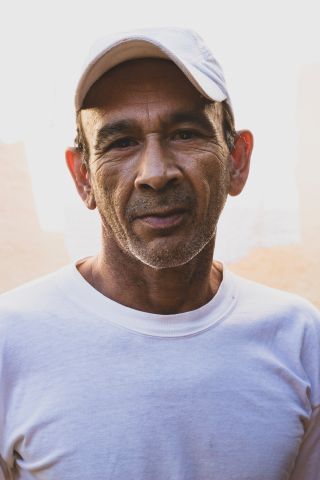Career
Aging Men Speak Out About Avoiding Irrelevance
Readers share their suggestions for how to stay engaged in life's final chapters.
Posted February 7, 2023 Reviewed by Abigail Fagan
Key points
- Older men share their wisdom for how to age meaningfully.
- One common theme readers suggest is to mentor younger people.
- A second theme is to focus on relationships with other people as a way to develop meaning.

I’ve written two posts recently about aging men and irrelevance. In the first, I laid out the need for men to develop an inner life in later years to anchor us as our relevance in the outer world of careers and external performance diminishes. In the second, in response to numerous queries about how to do this, I made the suggestion that the best way for a man to develop his inner world is to get into therapy.
I got even more emails after the second post. Some took issue with my suggestion for therapy, and many men shared their ideas for how older men can age meaningfully. With their permission (including using their names), I have collated some of these suggestions, editing for brevity and clarity, and am posting them here.
Being a guide for the younger generation
Jerry writes: Not a big fan of the therapy suggestion, but I suppose some of us are too far gone to do this on our own. And, of course, therapists need relevance, too, right? Most of us can probably figure this out ourselves.
My approach kills two birds with a single stone: Spend your senior years teaching the younger generation not to base their self-worth on external factors like their jobs. You'll feel like you're doing something worthwhile (which will be true, possibly for the first time in your life), and the new generations will learn to avoid our mistakes.
The tricky part is to recognize that your career, unless you were a doctor, was most likely a completely useless endeavor of no benefit to anyone except your employer. Focus on the fact that the income supported your family and yourself.
Then consider that you still have two to four decades to do something more meaningful or simply more fun than pushing papers around or making widgets to sell at the Dollar Tree.
In a similar vein, Jeffery writes: I think it's true for many that they spent so many years being competitive and getting their way to the top they forgot to provide a true legacy in their field. As a society, we put men out to pasture from work and they take that knowledge and experience with them… I have always been fortunate to foster those [mentoring] relationships and treasure them like gold. Maybe it is because I started so young as that apprentice that learned early on that those pools of knowledge are not book bound. As I am entering my fifties my mentors are getting fewer and fewer. But I still keep in touch regularly and ask questions beyond “how’s retirement?” A few years ago, I also started making sure I keep talking to the younger generation behind me coming up. I look for the smart ones without big egos and just befriend them. I sometimes find myself sharing knowledge passed to me or, even more fulfilling, passing on my own experience and seeing it make a difference in their success. Maybe if we as a society didn't shun the older generations we could offset these feelings of lack of purpose and at the same time speed up the learning process for the ones coming up behind us.
Barry says: That new purpose is never far away. Mentoring, providing friendship and companionship to your spouse or others. Many men find their purpose as a physical thing or something that has been built. Building an emotional bond can be much more rewarding. I know the typical guy doesn't look for this type of existence, but there are a large number of younger people in this world who don't have that mentor or guide to life. Let's face it, if you've made it to that age where you start to question this, you might have some life lessons to pass down. Many organizations look for people who can offer their time for this.
Joe writes: Perhaps inadvertently, l found this [mentorship] role for myself when l became a public high school substitute teacher after retiring from my career. In doing so, it provided me an opportunity to learn many new things currently being taught in our schools; to better appreciate our teenage years; and lastly, to learn a lot about myself in terms [of] internal biases, how to be more empathetic, and not to judge people, as you are not "walking in their shoes." I also took the opportunity to advise these young people on what it takes to be successful in life.
Connecting to other people
Bill writes: I'm a 71-year-old man...partly retired and partly volunteering. I've been in and out of therapy for over 30 years. I've discovered many aspects of myself over the years. Caring about others is one of my greatest principles. I stay connected to people and that has helped me to define who I really am. I have a great life now.
Tim writes: May I suggest, though, that there can also be something like a “new external” of “second-generation external” relationship focus, to run alongside, and perhaps supercharge, the exploration of the inner life? In my case, I left a three-decades-long high-energy/status career as a lawyer and am now a high school teacher in a low-income, largely immigrant neighborhood. These students and families are welcoming me as me, kindly and generously, and I am exploring a whole new rich terrain of external relationships. Maybe we don’t unlock the door to the second-generation external relationship without the opening of the inner? I’m also thinking of the external relationships as necessary in some ways to the generative instinct of “passing something on.”
Book recommendations
Dave writes: I'd like to make a number of reading recommendations that I've found directly address the issue and address it well. I would highly recommend any of James Hollis's books. Finding Meaning in the Second Half of Life is a good one to start with. He also has a number of videos available. James Hillman is also a good read. I'm presently reading The Inner Work of Age, Shifting from Role to Soul by Connie Zweig, Ph.D., and plan to read From Age-ing to Sage-ing by Zalman Schachter Shalomi and Ronald Miller.
Sean suggests: Some of the works by Robert Bly and Richard Rohr explore men’s issues and I have found them quite enlightening. With regard to exploring or expanding an inner world, I think far too many are underexposed to meaningful fiction. By that, I mean novels. Part of the shadow work men have to do is learn to see life through the eyes of another. Far too few men take the time to read a novel that might provide perspectives they are unlikely to get from movies and even less so with social media. Reading is an important way to experience and expand empathy. And empathy for the “other” is something sorely missing in the modern world.
To all these men and the others I didn’t have room to include, I thank you for writing and sharing your hard-won wisdom. I especially appreciate the chance to give men an opportunity to mentor other men.




